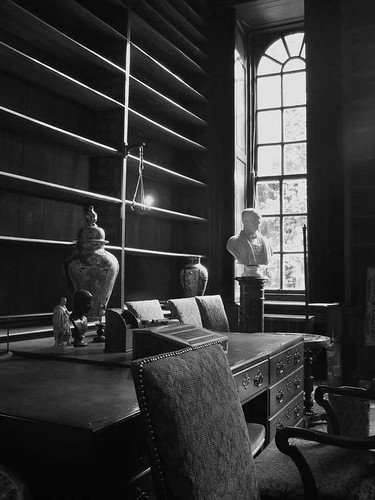(GIS for "Scottish," first entry.)
That, my friends, is Lord Dalrymple and son, two generations of the family that built Newhailes House, just outside Edinburgh.
You see, for much of the 18th century, Edinburgh was one of the great cultural capitals of Europe. Dubbed the "Athens of the North," Edinburgh was home to some of the most important scholars of the Enlightenment, such as Adam Smith and David Hume.
(Notice: no kilt.)
During this time, Edinburgh's cultural influence extended throughout Europe and beyond, and some of the leading lights of the day continue to influence modern politics and philosophy.
This "Scottish Enlightenment," as it would come to be called, succeeded largely through the patronage of powerful families like the Dalrymples. Such patrons not only provided political protection and financial support: in many cases, they were amateur scholars themselves, and the collections they had amassed served as important libraries for Enlightenment scholars.
The library at Newhailes House in East Lothian was one such establishment, drawing a number of scholars from nearby Edinburgh, including the aforementioned David Hume and Adam Smith. For this reason, my class on the Enlightenment took a field trip to Newhailes last week for a private guided tour.
In many ways, Newhailes is a typical Enlightenment retreat: built within a short ride of Edinburgh, the house projects both impressive wealth and a sense of isolation and rural repose. Don't be fooled, though, Newhailes is actually on the small side for homes of its type--its facade may be imposing, but the house is only one room deep.
Nevertheless, the interior doesn't disappoint. The two-storey library accounts for about one-third of the house, and definitely had me green with envy.
(From Flickr--no cameras allowed in the house.)
Alas, the books, for the most part, are gone--shipped off to the National Library to pay death duties. There's still an interesting little collection in the sitting room at Newhailes, but the shelves of the library proper are bare. Sad, but oddly evocative, and at least now the books are easily available to the public.






No comments:
Post a Comment